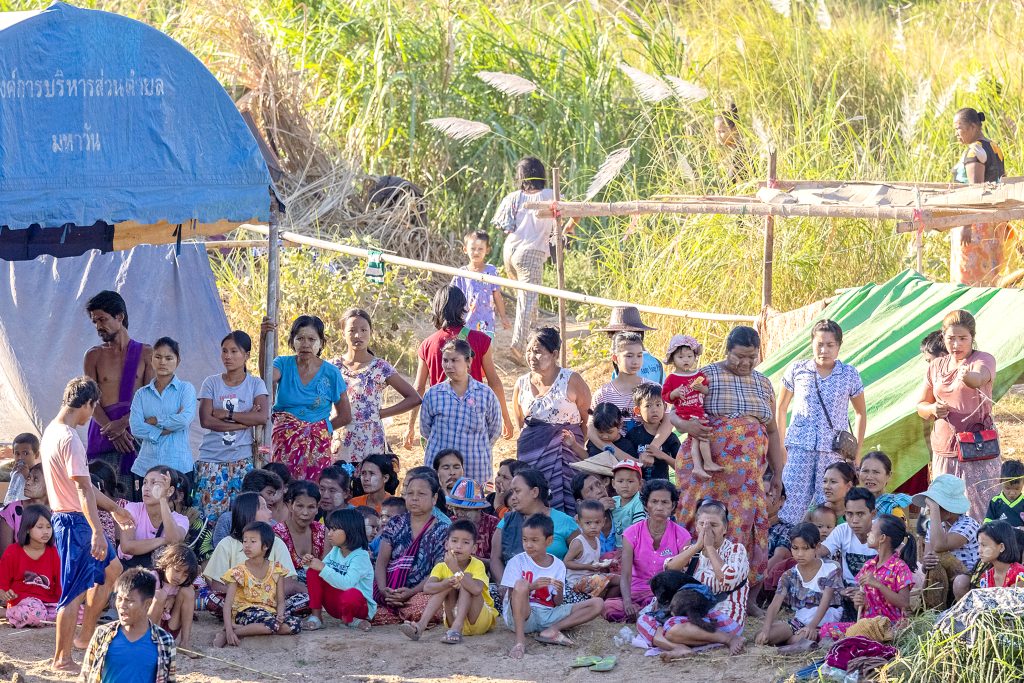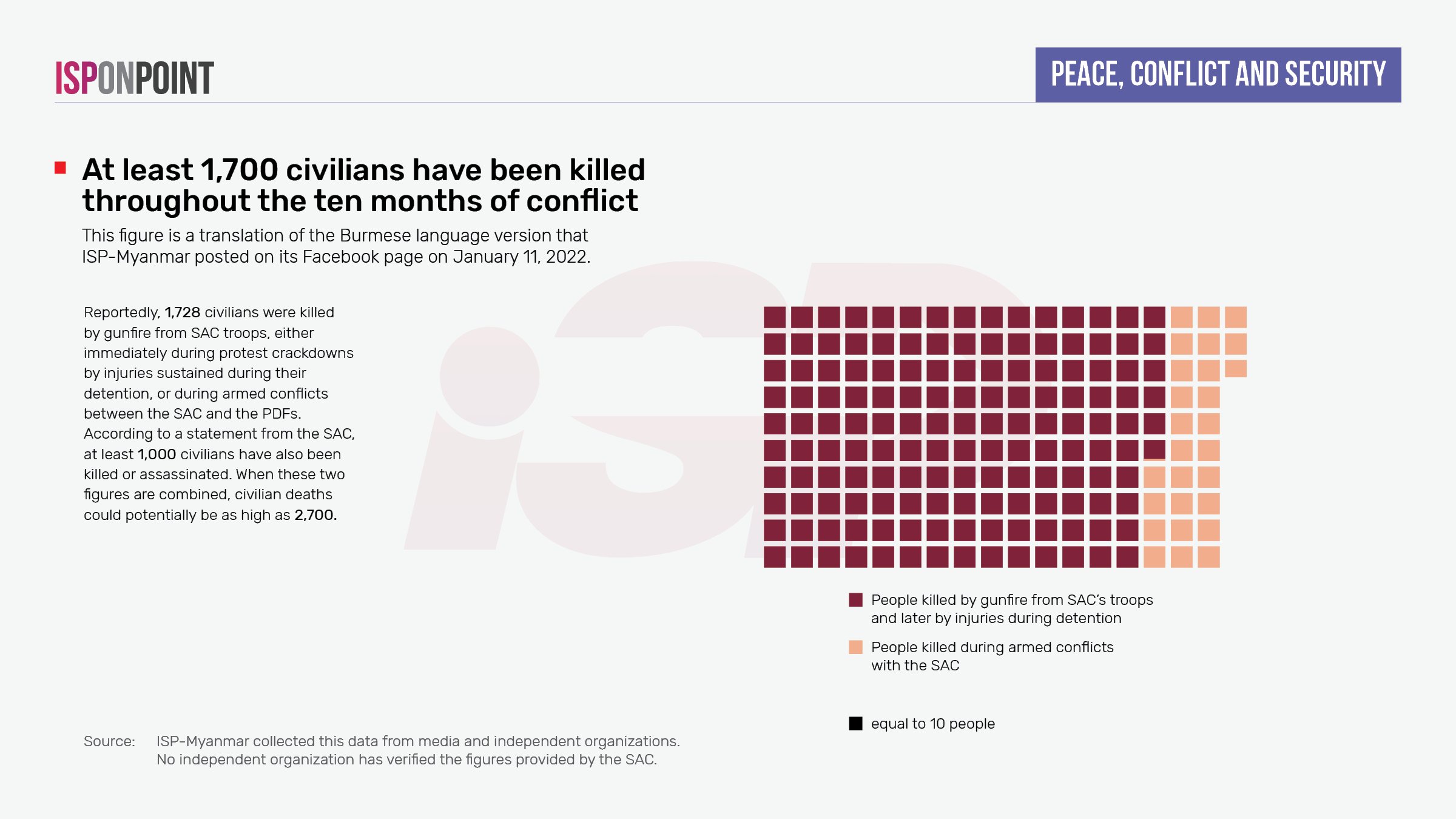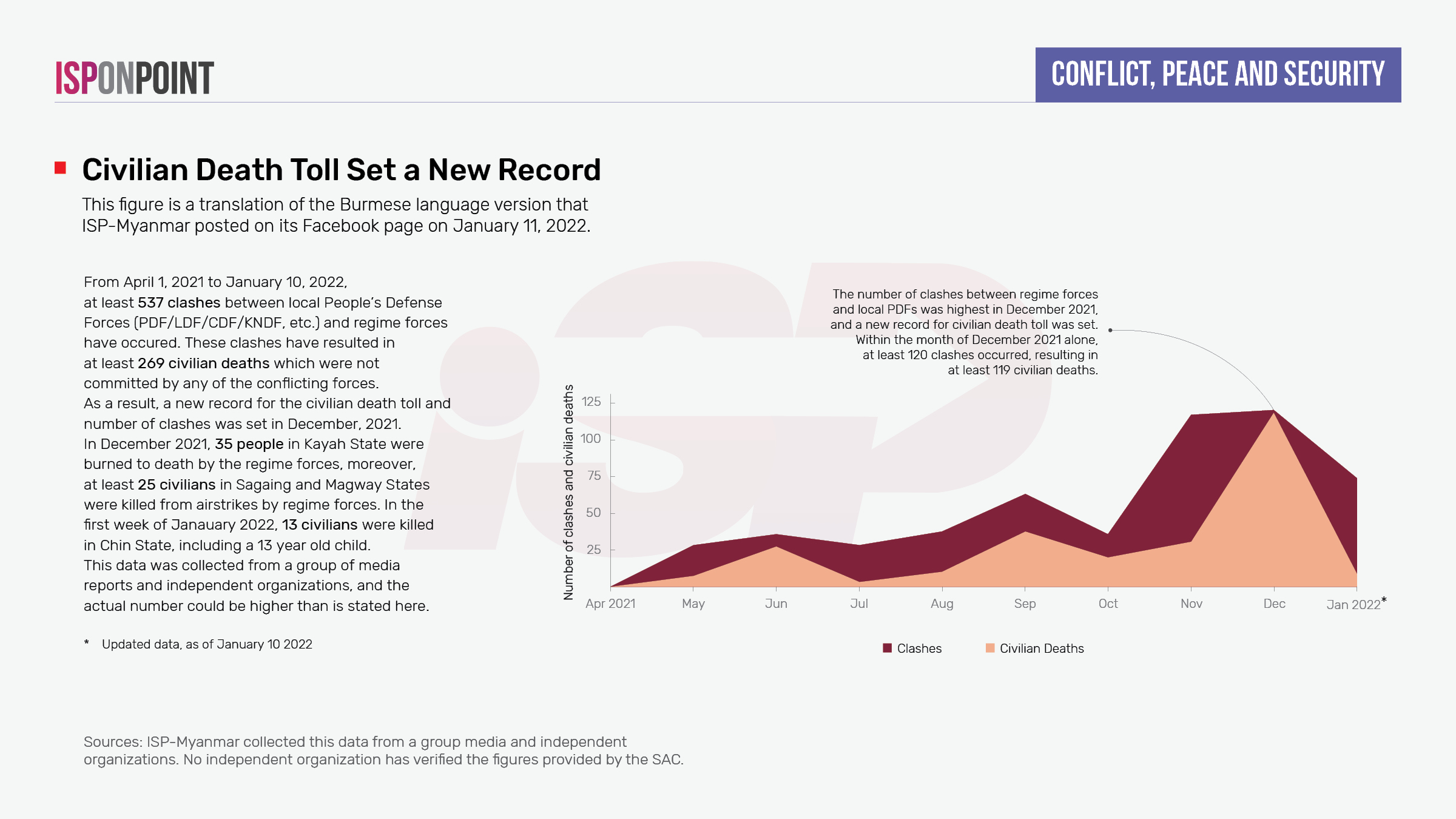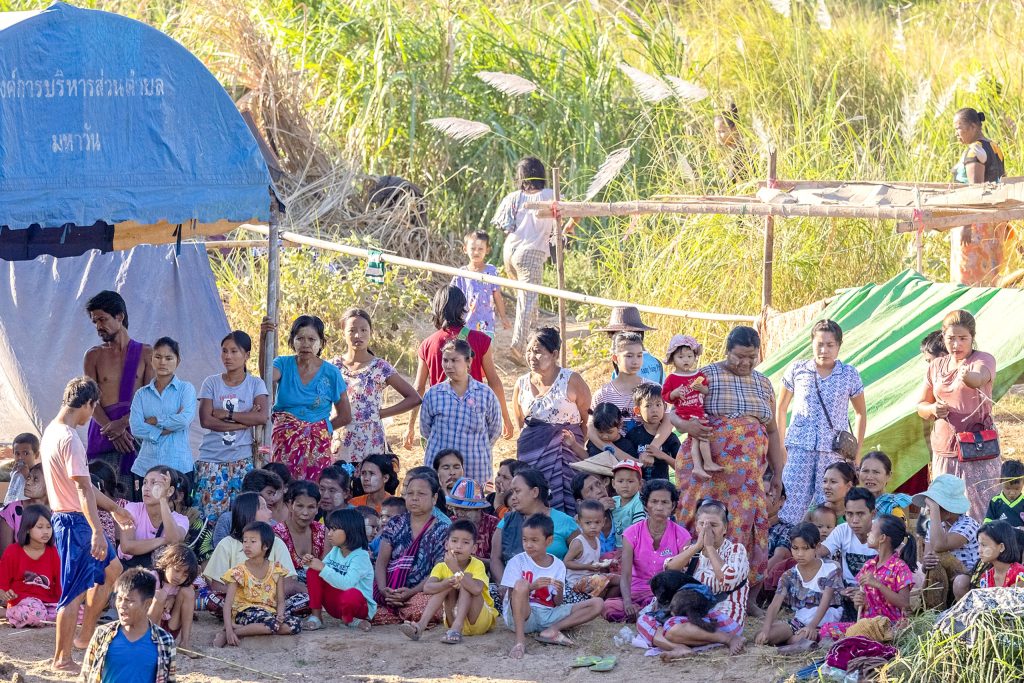
OnPoint No. 5
(This article is a translation of the original Burmese language version that ISP-Myanmar posted on its Facebook page on January 11, 2022.)
∎ Event
There has been a record high amount of civilian casualties during the State Administrative Council (SAC)’s military offensives in Kayah State, Sagaing, and Magway Regions, which has included actions such as air raids against residential towns. During this period of escalating violent conflicts, Cambodian PM Hunsen, who is also presently serving as the rotating Chairperson of the ASEAN, visited Myanmar and made commitments regarding the delivery of humanitarian assistance.
∎ Preliminary analysis
Eleven months after the military coup, the SAC began using their superior force and ruthless military tactics to quell the mounting resistance of the People Defense Forces’ militia. Last month, military forces reportedly killed thirty-five civilians by setting them on fire in an incident of Kayah State, and thirteen civilians, including a 13-year old child, were also killed in Chin State. In the Sagaing and Magway Regions, at least twenty-five villagers were killed in an air strike, according to news reports. Meanwhile, the number of forced displacements caused by fighting has increased to 33,047 people in just a single month in the Kayah State, Sagaing, and Magway Regions.
During this period of destructive conflicts, civilian protections and access to humanitarian resources are essential—which is one of the proposals that ASEAN agreed upon in the five point consensus concerning Myanmar. During the visit of the ASEAN Chair, PM Hunsen, and later at the press conference of the Cambodian Foreign Minister cum ASEAN Special Envoy to Myanmar, H.E. Prak Sokhonn, it was stated that humanitarian assistance to Myanmar would be delivered through the ASEAN Coordinating Centre for Humanitarian Assistance on disaster management (ASEAN’s AHA Centre) along with the Red Cross organizations and the United Nations. However, the most urgently-needed assistances for the affected population could be delayed by bureaucratic process and legal hurdles.
Unprotected and vulnerable civilians in Myanmar cannot be saved by the international community’s wait-and-see approach as well as their impotent condemnations. The current humanitarian crisis is more urgent in nature and will need a different resolution than traditional political problems, which require patience in waiting for the right moment and compromising with other key stakeholders. For solving these longstanding and complicated political problems, it is important to obtain the approval of all parties, but this is not the case for emergencies which need to support urgent civil security and provide humanitarian assistance. The international community needs to adopt a sense of urgency in responding to such emergencies. It is key to begin implementation immediately to reduce the threat level and vulnerability of refugees and victims of the conflict.
If the international community, including concerned humanitarian agencies, fail to instigate the appropriate emergency response, a more severe crises could be more imminent. A ‘double jeopardy’ situation could even be possible when viewed alongside the COVID-19 Pandemic and the potential economic drawbacks, and a new round of civil conflicts could trigger further negative impacts, even to neighboring countries. Though the longstanding reasons for refraining to act in Myanmar may indeed be relevant (inaction has generally been supported by international actors due to reasons of complexity concerning the Myanmar case), Myanmar’s crisis still should not be neglected just because it is not considered a strategic priority for those powerful Western countries. This case must not become a political football being tossed back and forth between regional and international agencies.

Cambodia’s PM justifying his “new engagement approach” with the Myanmar junta may not sit well with other ASEAN members. Rather, the Cambodian PM should ask the UNSC to convene an emergency meeting in order to address the urgency of the situation in Myanmar. Meanwhile, other neighboring powers, such as China, India, and Thailand should urgently formulate an “ad hoc mechanism and support system” in order to prevent a humanitarian crisis and to put a halt to any attacks on civilians or usage of military force against them.

∎ Scenario Forecast
While Myanmar’s civilians are facing the urgent issues of security and humanitarian emergencies, it is unlikely to receive international attention and an immediate response. The SAC may see the implementation of ASEAN’s five point consensus on Myanmar as mere window-dressing and an entry ticket for ASEAN and other related initiatives. At the same time, conflicting parties may prioritize political and military advances. These parties may envision one final conquest which could rectify the situation entirely, from their perspective. It is important that all parties concerned seriously consider the human costs of war and other disasters.
ISP’s OnPoint section aims to provide a concise preliminary analysis and scenario forecast on the current significant events and developments.

